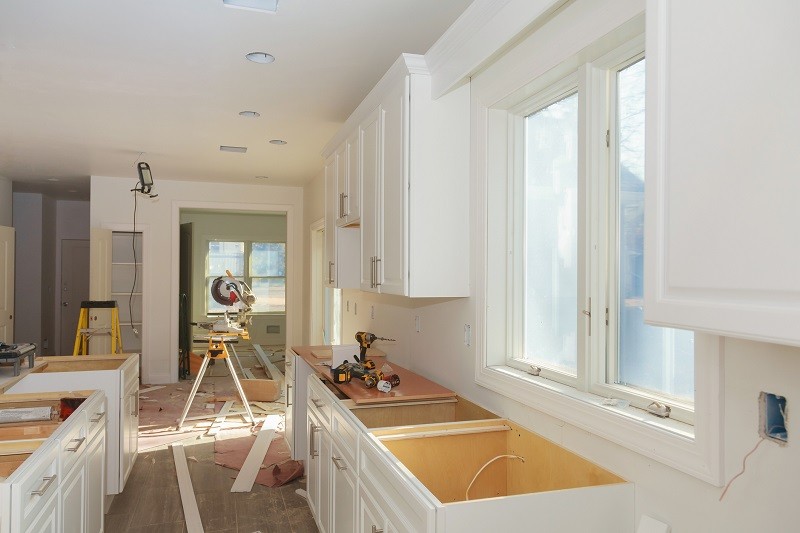4 Questions You Need to Answer Before an Interior Home Remodeling Project
Are you planning a new interior home remodeling project?
Any home remodeling project is an exciting opportunity to add new and exciting additions to your home. Whether you are trying to improve its value as you prepare to sell, you are trying to accommodate your growing family, or you just want to breathe some new life into an old home, a remodel can help you achieve your dreams.
However, remodeling projects, if you want them done right, can be a very intricate process that requires a lot of upfront preparation and planning. Diving head first into a home remodeling project without first crossing all your t’s and dotting all your i’s can send your project down a path full of delays and overspending. This is a home remodeling nightmare!
All of this can of course be avoided by doing the proper planning before you ever contract a contractor or break out your toolbox if you are a DIYer. If you want to make sure your home remodeling project is done as smoothly as possible, you’ll want to make sure you have the answers to these 4 important questions.
What is your budget?
Knowing the answer to what your budget is is perhaps the most important question you need to ask yourself because it applies to every single home improvement project, regardless of what it is. Knowing your budget, and holding yourself accountable for staying within your budget, will give you guidance as to certain design decisions and ultimately the scope of your project.
Going over budget on a home remodeling project isn’t just a matter of spending more money that you planned. If you are spending money like mad without consulting your budget, you are going to find yourself in a position where you have suddenly over extended. For example, you have bought beautiful new marble countertops for your kitchen but now you won’t be able to afford to pay the contractor to install them. Over extending will always put you in an awkward position.
Going over budget means you have two equally unappealing options to continue the project: either use money set aside for other important purposes, like paying the bills or buying food, or putting the entire project on hold until you have the funds. Option A gets the project moving along but is not sustainable in the long run and can be unfair to those you love. Option B will make sure you don’t overspend again, but you’ll have to put up with an unfinished project for much longer.
Neither option is ideal, which is why determining your budget up front and diligently calculating your spending is important for avoiding these situations.
Can you continue to live at home through the project?
Most home remodeling projects, whether you are replacing the subfloor or renovating the kitchen, are in large enough scope that they won’t be knocked out in an afternoon in time to enjoy by super. These kinds of updates will require days, weeks, even months in some cases.
But, of course, the world doesn’t stop for a home renovation and you will have to keep on living life as normal. The question you need to ask yourself ahead of time is will you be able to continue to live normally at home during the project?
In some situations you almost certainly will be able to. If you are renovating the basement bathroom, for instance, the solution is to just not use that bathroom – easy peasy. However, if the renovation is in a more central and used area like the kitchen, the answer isn’t so simple. Will you still be able to prepare meals during the renovation or were you planning on eating takeout Chinese food and pizza for dinner every night for the next several weeks?
This line of thinking also applies for other updates like large exterior projects or multi-room interior projects. If the renovation is significant enough, you might want to consider finding a temporary living arrangement until the remodel is finished, or at least far enough along that you can live normally at home. Figuring this out in advance gives you enough time to find a hotel or ask nearby family members for a favor.
Do you need authorization?
You might not realize it, but you aren’t the only one who has a say in your home’s remodeling project. Depending on where you live or what kind of project you plan on doing there are two organizations you may have to go through: your Homeowners Association (HOA) and your local government.
If you are a part of a community with an HOA, most exterior and interior home renovations need prior approval from the board in order to proceed with the project. One of the primary responsibilities of an HOA is to enforce architectural guidelines, rules, and regulations of the community. By being a part of the HOA, you are subjected to their power to approve or deny your project if it strays from those guidelines.
What if you aren’t a HOA member? Regardless of whether you have to answer to an HOA, you will have to answer with your local government. Depending on where you live and what kind of remodel it is, you may need to obtain permits before you begin working. Failure to do so may result in serious fines.
In short, before you get too far along in the planning of your project make sure there isn’t anyone else that needs to be involved or provide their blessing.
Are the floors level?
Whether you are redoing the den or updating your kitchen, many home remodeling projects will involve updating the floors. New flooring is a great addition to any project, as it is a simple way to help unify or define the new aesthetic style you are looking to establish once the project is complete. If your remodeling project will involve new flooring, there is a very, very important piece of information you need to figure out: are your floors level?
Beneath the floors you walk on is another subfloor that your floor is installed on top of. If your subfloor is uneven or damaged, it can create serious complications to your project. Installing flooring on top of uneven or damaged subflooring voids the flooring’s warranty and any flooring installer worth their salt won’t take the job if the subfloor is in that kind of shape.
The solution? If your project involves flooring updates of any kind, have your subfloor examined and if work needs to be done you will need to account for that in your budget as well.
It can be difficult to identify subfloor damage on your own, so let the experts at Tish Flooring be your flooring resource for any home remodeling project! We are honest and transparent to help homeowners address and correct subfloor concerns so their new flooring looks its best for as long as possible and their investment is protected.
Schedule your in-home estimate today and our team will bring flooring samples right to your door! Call 317-879-(TISH) 8474.


